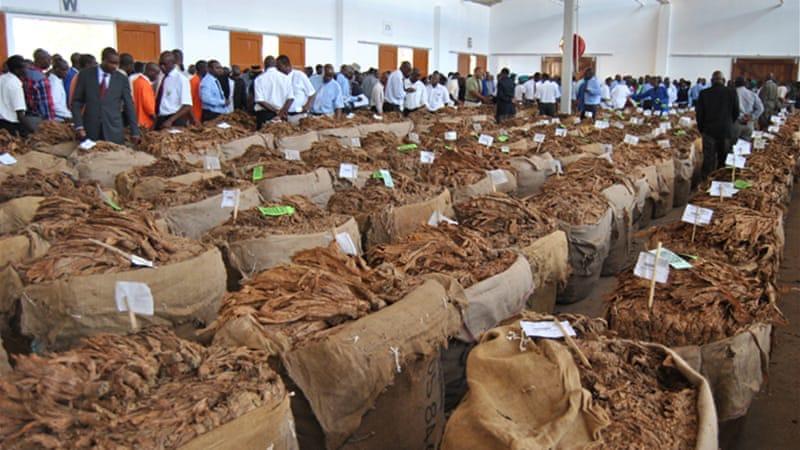Africa-Press – Malawi. Global public health expert, Professor Derek Yach, has disapproved of decisions by the World Health Organisation (WHO) to exclude players in the tobacco industry at its engagements and conferences, arguing the tendency is robbing public health scientists the opportunity to get high-quality research.
WHO recently determined that it is not necessary and is fundamentally inappropriate to incorporate tobacco industry players in its public health engagements. Instead, the WHO Framework Convention on Tobacco Control (FCTC), a legally binding international treaty, obligates its member Parties to protect their public health policies from the commercial and vested interests of the tobacco industry.
The reasons for this stance have been outlined in the FCTC’s Article 5.3 guidelines, which include:
Irreconcilable Conflict of Interest: There is a fundamental and irreconcilable conflict between the tobacco industry’s goal of maximising profit and public health policy interests, which aim to reduce tobacco consumption and exposure to tobacco smoke.
History of Undermining Health Policies: The tobacco industry has a long history of employing tactics to subvert or delay government efforts to implement effective tobacco control measures, such as discrediting proven science, lobbying against legislation, and using litigation threats to intimidate governments.
Misleading ‘Corporate Social Responsibility’ (CSR) Activities: The industry uses activities described as ‘socially responsible’ to gain access to policymakers and create an illusion of legitimacy and a ‘changed’ company, which ultimately serves as a marketing strategy to promote its products.
Addictive and Harmful Products: Tobacco products are inherently lethal and addictive, causing millions of deaths annually. The industry should not be granted incentives or privileges to run its business when its core products are harmful.
Need for Transparency: Any interactions with the tobacco industry that are strictly necessary for the purpose of regulation must be conducted in a fully transparent and accountable manner, such as through public hearings or documented meetings, to prevent undue influence.
However, speaking at a webinar ahead of the 11th session of the Conference of the Parties (COP11) to the WHO FCTC, scheduled to take place in Geneva, Switzerland, from November 17-22, 2025, Yach criticised the decision, stressing that it is high time WHO became aware and open to “the fact that the industry can and will try to interfere” if their voices are not heard.
“They need to be aware and open to the fact that the tobacco industry can and will try and interfere, and you need to put in processes to manage that. Don’t exclude them and anybody who associates with them. That simply is going far too far, and it’s robbing the public health scientists of the high quality research that the industry can and is bringing to the table,” he said.
“Actually, this reminds me of something I was looking at the other day. The Centre For Global Governance in tobacco control (funded by Bloomberg) put up an industry interference index, and they’ve included some consumer groups, and simply, it seems to me that anyone who disagrees with them is considered industry influence these days, which is a gross mis-implication of article 5.3. Isn’t it?” asked Yach.
“If you think back to the late 1990s, the tobacco industry didn’t have much on the table in terms of Harm Reduction. 100% of their sales were combustible or toxic oral tobacco products. Today, we have 50 million consumers around the world who are using a range of products like heated tobacco, vapes and nicotine pouches. We have many companies starting to get up to 50% of their revenue from countries using reduced-risk products. Billions of dollars have been invested in research. This is a different world today than what it was 20 years ago, and to say that there’s an irreconcilable difference no longer makes sense, given that the industry has real interest in trying to move people towards reduced-risk products.
“Think about it, we said the same thing about the oil and gas industry or the motor vehicle industry 20 years ago. There were gas-guzzling pollution-producing motor vehicles on the road. Motor vehicle manufacturers have started to produce electric cars and are gaining revenue from them. At this point, you wouldn’t say that there’s an irreconcilable difference between them and the interests of the environment. Getting rid of all combustible cigarettes is certainly the goal, and one we need to keep working on. We need to be encouraging faster movement from cigarettes to reduced-risk products as a way of addressing public health interests,” said Yach.
“That means that when WHO authorises nicotine pouches, snus, heated tobacco products and vapes, they have judged the evidence and balanced whether the overall interests of improving adult health are going to outweigh some of the concerns that many people may have,” argued Yach.
The official agenda of the session focuses on the need to address the tobacco industry’s use of a ‘Harm Reduction narrative’ as a potential commercial or vested interest interference with public health policies.
For More News And Analysis About Malawi Follow Africa-Press






